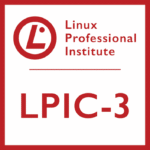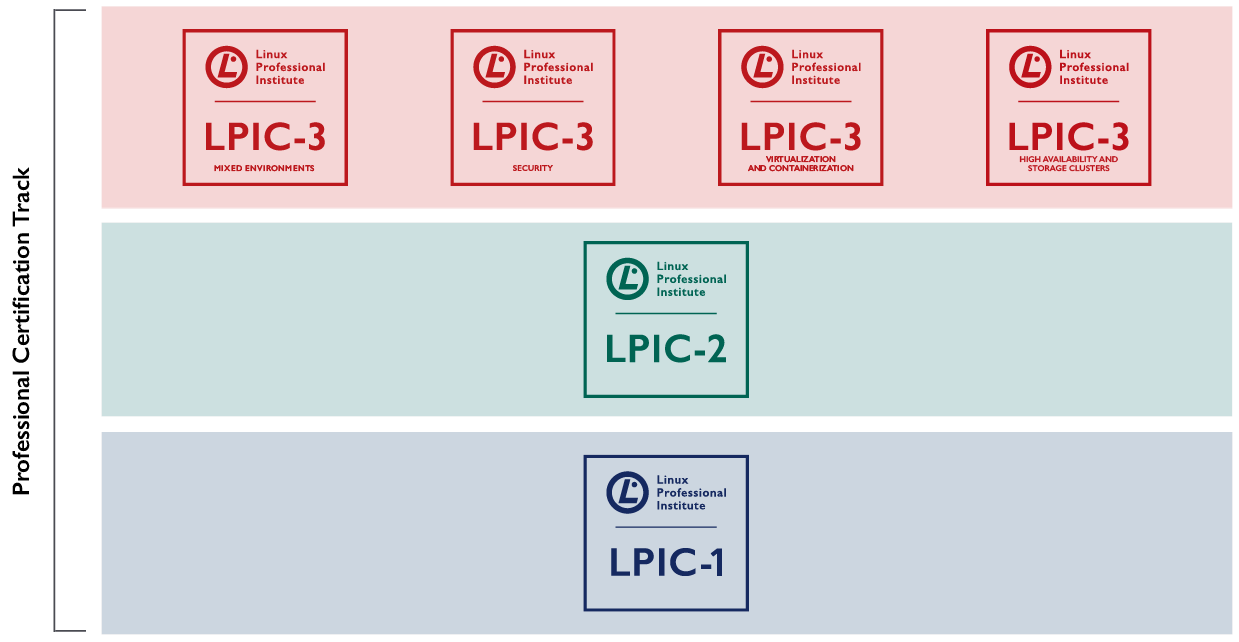If you’re a Linux professional who has already earned LPIC-1 and LPIC-2, you’re probably looking for the next step to advance your career and deepen your expertise. That’s where the LPIC-3 comes in, the highest level in the Linux Professional Institute (LPI) certification track.
In this guide, we’ll cover everything you need to know about LPIC-3, including its different specializations, what each exam covers, and how to choose the right path for your career.
What Is LPIC-3?

The LPIC-3 certification is the most advanced certification offered by the Linux Professional Institute. It is aimed at senior-level Linux professionals who are responsible for enterprise-level Linux systems.
Unlike LPIC-1 and LPIC-2, which follow a linear path, LPIC-3 offers multiple specialization tracks, allowing you to tailor the certification to your area of expertise or career goals.
Exam Characteristics
To earn an LPIC-3 certification, the candidates must:
- Hold an active LPIC-2 certification at the time of taking the LPIC-3 exam.
- Pass a single exam corresponding to their chosen specialization.
- Exam format: 60 multiple-choice and fill-in-the-blank questions.
- Exam duration: 90 minutes.
- Availability: Exams can be taken at Pearson VUE testing centers or online via OnVUE.
- Languages: English or Japanese.
- Validity: The LPIC-3 certification is valid for 5 years.
These exams are designed to validate deep, practical knowledge in enterprise environments, making them ideal for experienced professionals aiming to prove their expertise.

LPIC-3 Certification Paths
There are currently four LPIC-3 specializations you can choose from:
1. Mixed Environment (Exam 300-300)
Focuses on the integration of Linux systems into mixed environments that include Windows systems.
- Samba and Active Directory integration
- Domain controllers and file sharing
- Authentication backends (Kerberos, LDAP)
2. Security (Exam 303-300)
Designed for professionals responsible for securing enterprise-level Linux systems.
- Cryptography and network security
- Access control and application security
- VPNs, SSH, and intrusion detection
3. Virtualization and Containerization (Exam 305-300)
This is the newest and most modern specialization, focusing on technologies essential to DevOps, cloud infrastructure, and scalable application deployment.
Topics Covered:
- Virtual Machines: Xen, KVM, QEMU, libvirt
- Containers: LXC, LXD, Docker
- Container Orchestration: Fundamentals of Kubernetes and other tools
- Virtualization and Cloud Tools: Deployment and provisioning of VMs
If you’re aiming to become proficient in modern infrastructure and DevOps practices, LPIC-3 305 is the ideal path.
4. High Availability and Storage Clusters (Exam 306-300)
Focuses on the implementation and maintenance of high availability and storage solutions in enterprise environments.
- Cluster infrastructure and management
- Storage replication and distributed file systems
- High availability concepts and failover mechanisms
Why Pursue LPIC-3?
LPIC-3 is designed for experienced professionals and offers several career benefits:
- Recognized globally by employers and governments
- Validates your skills in complex, enterprise-level Linux systems
- Demonstrates specialization in high-demand areas like containers, virtualization and security
- Strengthens your resume and supports career advancement to roles such as Senior Linux Engineer, DevOps Architect, or Systems Consultant
Preparing for LPIC-3 305
Because LPIC-3 exams are deep and focused, preparation is critical. If you’re pursuing the 305: Virtualization and Containerization track, consider a course that is:
- Aligned with the official LPI objectives
- Taught by an experienced, certified instructor
- Includes real-world examples, simulations, and quizzes
At Certify Linux we offer a comprehensive LPIC-3 305 preparation course that includes:
- On-demand video lessons
- Practice exams with detailed explanations
- Instructor support
Whether you’re looking to upskill, specialize, or future-proof your Linux career, LPIC-3 305 is a smart and strategic next move.
Final Thoughts
The LPIC-3 certification is not just another exam, it’s a statement that you are a Linux expert, ready to lead in complex enterprise environments. With several specialization tracks to choose from and a growing demand for skills in virtualization and containerization, now is the perfect time to pursue LPIC-3 305.
Ready to take the next step?
Explore our LPIC-3 305: Virtualization and Containerization Course and start your journey toward becoming an LPIC-3 certified Linux expert today.